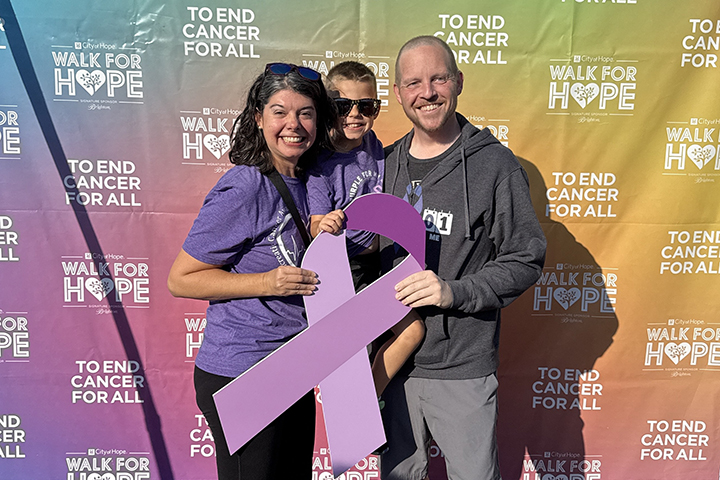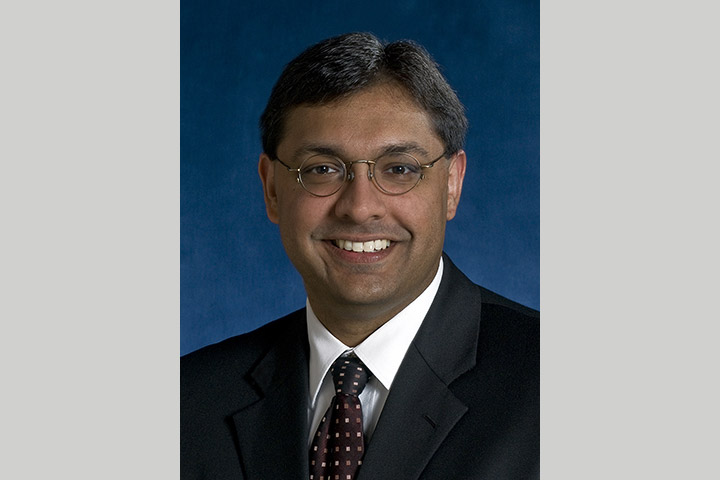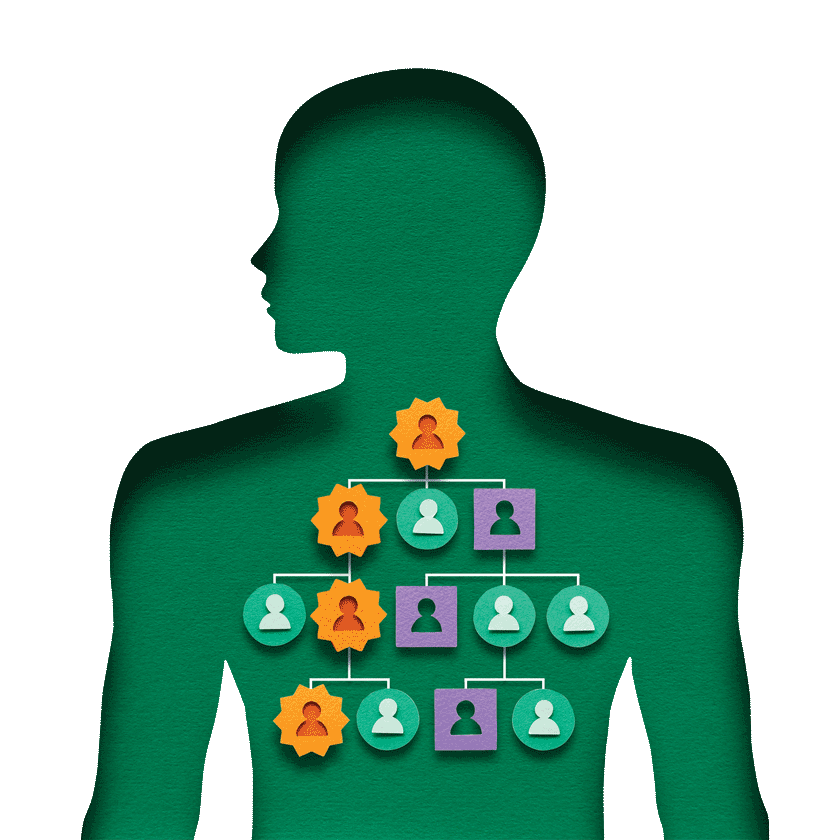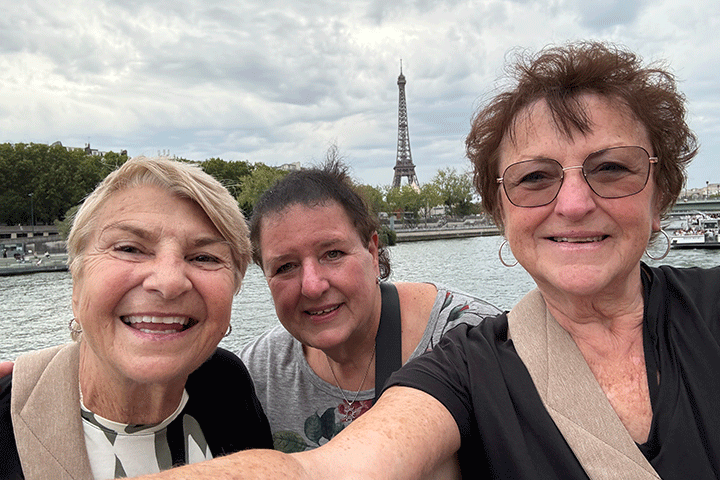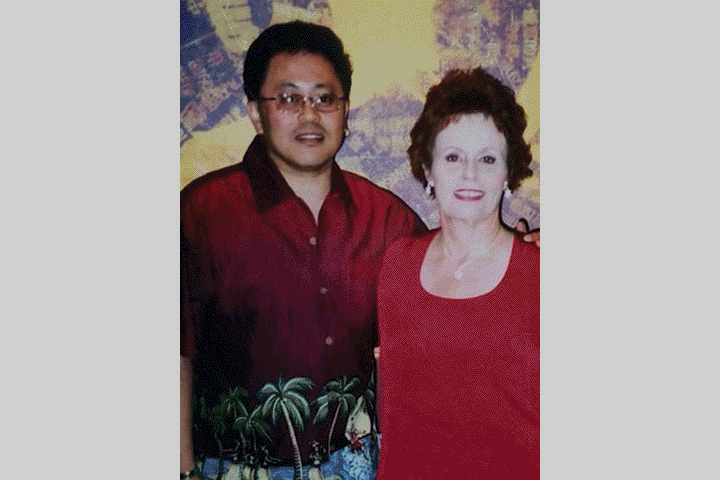The Sound of Hope
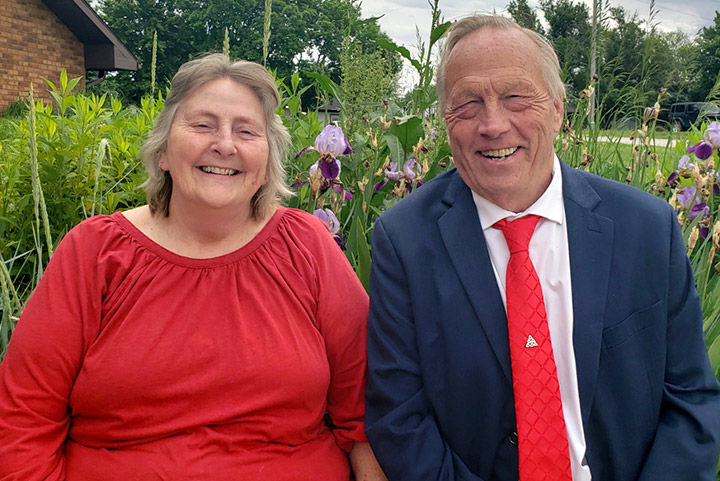
- Family history of pancreatic cancer
- False negative on first biopsy
- Distal pancreatectomy plus chemotherapy
I didn’t give pancreatic cancer any thought until it punched me in the gut . . . three times in a row.
First, in the summer of 2017, my sister was suffering from a long illness, but it went undiagnosed for many months. It wasn’t until October of that year that doctors confirmed she had stage IV pancreatic cancer. She died a few weeks later. In February 2018, doctors diagnosed my twin brother with a tumor in his pancreas. He passed away immediately afterward due to complications after the biopsy. Seven months later came the final blow: my own diagnosis of stage II pancreatic adenocarcinoma.
No Symptoms and a False Negative
The only reason I went to the doctor in the first place was for a rash on my skin, which eventually was diagnosed as shingles. But my doctors suspected I had cancer somewhere in my body, although they couldn’t pinpoint it. I had several scans and a biopsy, which came back negative. I thought I was in the clear. But my doctor wanted to dive deeper into it and finally confirmed that I had pancreatic cancer.
I was determined to get through this. At first, I was scheduled for robotic surgery at a local facility, but my family encouraged me to go to the University of Nebraska Medical Center (UNMC) in Omaha, an hour away from my home in Lincoln. There, I met surgeon Dr. Luciano Vargas and I knew I was in the right place. Ten days later I was having surgery.
Surgery and Chemo
Dr. Vargas performed a distal pancreatectomy to extract the cancer from my body. This included removing the tail of my pancreas, all of my spleen, and several of my lymph nodes.
After I recovered from surgery, I began chemotherapy, supervised by oncologist Dr. Kelsey Klute. I began chemotherapy in December 2018. For six months, my wife and I drove 45 minutes every two weeks from Lincoln to Omaha for chemo sessions. I had fluid infusions, weight monitoring, and neuropathy monitoring. I lost one-third of my body weight and had a hard time eating.
I ended up taking advantage of every treatment available at UNMC. Dr. Klute insisted on genetic testing for me, especially with my family history. But there were no mutations detected.
A List for Hope
I started losing hope during treatment. I began writing a list of things I would miss out on if I didn’t make it through the disease. But I stopped myself after writing a few items on the list, turned over the paper, and started a new list of things I am going to do. This positive shift in my thinking helped me get through the hardest times. I have never looked at the other side of that piece of paper since then.
Finally, with hope, family, and faith, I completed twelve rounds of chemo and finished by ringing the “no more chemo” bell at UNMC. It was a joyous day for my wife, my kids, my doctors, and for me.
It’s been almost six years since my life was changed by pancreatic cancer. I have been living cancer-free for more than five years and enjoying every minute of every day. I am always going to look at the bright side of my life (and the hopeful side of that paper), no matter what comes up.
In fact, I am so proud of how far I’ve come that I ring the bell every time I get a clear bill of health at UNMC. I don’t just go and give it a little tap—I smack it so it rings out. Then I say loudly, “That is the sound of hope.”
If I could pass any message on to others that are enduring this disease, it is this: There is hope. There is hope.
